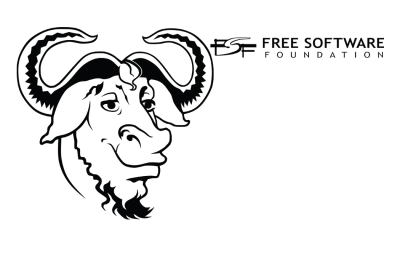Free Software Foundation vs Microsoft Windows 8 "Secure Boot"
So far, the "Secure Boot" feature that Microsoft requires for Windows 8-certified hardware has caused a lot more anxiety in the Linux community than actual harm. Most Linux distributions have viable plans for working around the potential problems that Secure Boot poses. Nonetheless, the Free Software Foundation has embarked on a campaign to fight the feature tooth-and-nail.
 So far, the “Secure Boot” feature that Microsoft requires for Windows 8-certified hardware has caused a lot more anxiety in the Linux community than actual harm. Most Linux distributions have viable plans for working around the potential problems that Secure Boot poses. Nonetheless, the Free Software Foundation has embarked on a campaign to fight the feature tooth-and-nail. And it wants your help.
So far, the “Secure Boot” feature that Microsoft requires for Windows 8-certified hardware has caused a lot more anxiety in the Linux community than actual harm. Most Linux distributions have viable plans for working around the potential problems that Secure Boot poses. Nonetheless, the Free Software Foundation has embarked on a campaign to fight the feature tooth-and-nail. And it wants your help.
Promoted by Microsoft as an extra layer of security, Secure Boot is a feature embedded into device firmware that prevents unauthorized operating systems from booting. That means PCs designed for Windows 8 could refuse to run Linux out-of-the-box.
But while that may sound worrying for open-source fans, the actual threat is pretty minimal. Most Linux distributions have strategies in place for working around the Secure Boot limitations by signing the requisite open-source bootloader software (in most cases, Grub 2) with keys that the firmware will recognize, allowing Linux kernels to boot.
Without a doubt, Secure Boot doesn’t make the lives of Linux users any easier, and it has caused development delays for distributions like Fedora (though those stemmed from squabbling between developers over which method to adopt in working around Secure Boot, rather than from the technical challenges it poses), but it won’t eradicate open-source operating systems from the world in the way some doom-and-gloomers predicted when Microsoft announced the feature.
Still, the Free Software Foundation, one of the open-source channel’s most influential organizations in moral (if not financial) terms, is aggressively combating Secure Boot with a multi-channel campaign. The group plans to educate the public on avoiding Secure Boot-enabled hardware, pressure device manufacturers to avoid measures that will prevent consumers from installing the software they wish and combat Microsoft’s proposal for implementing a similar feature on ARM-powered smartphones and tablets.
To advance its efforts, the FSF has created a petition, signed so far by more than 40,000 individuals and 50 organizations. The signatories pledge not to purchase hardware that fails to “provide a sure-fire way for them to install and run a free software operating system of their choice.” The FSF also invites users to donate $50, although it’s not clear whether that money will be used to combat Secure Boot specifically, or support the FSF’s operations more generally.
From my perspective, the FSF’s campaign against Secure Boot is noble enough. As a committed open-source user and advocate, however, I also worry that the group has not defined exactly what it hopes to achieve. Its stated aims are not to do away with Secure Boot entirely (a goal which even the ideological stalwarts at the FSF, apparently, recognize as impossible to achieve), but merely to ensure that the feature is implemented in a way that ensures users the freedom to install the operating system of their choice. So far, that freedom seems to remain intact, so it’s not entirely clear what changes the FSF would like to see.
That said, public resources that would help consumers avoid Secure Boot-enabled hardware would certainly not hurt. Nor would efforts to keep users aware of this issue in order to help prevent monopolistic abuse from occurring in the future. Kudos to the FSF for this work.
About the Author(s)
You May Also Like


